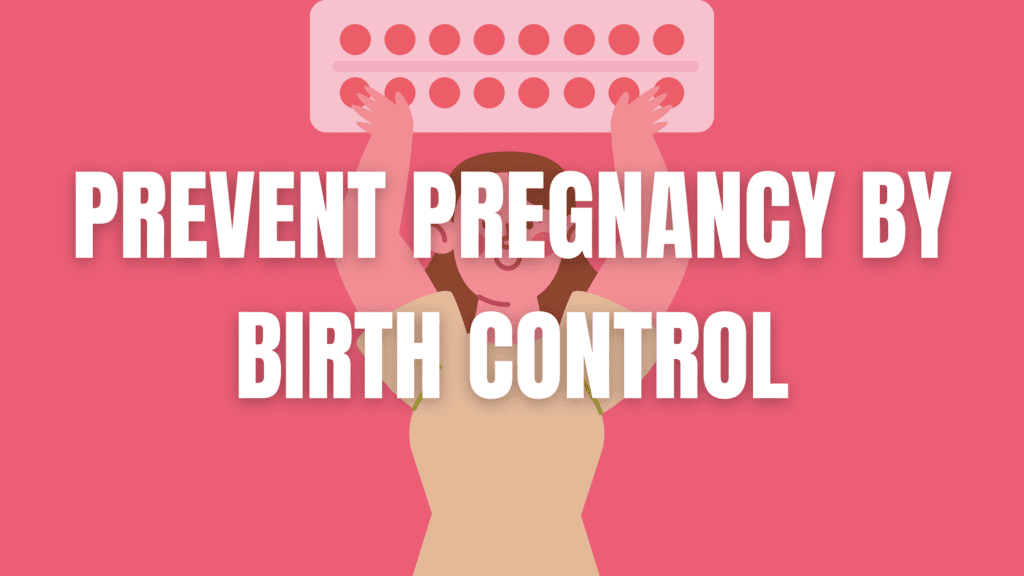Using birth control is one of the most effective ways to prevent pregnancy, but like any method, it’s not 100% foolproof. To maximize its effectiveness and ensure you’re fully protected, it’s important to understand how birth control works and how to use it correctly. This blog will dive into everything you need to know about preventing pregnancy while on birth control, including common mistakes to avoid and additional measures you can take.
How Birth Control Works
Birth control methods, whether hormonal or barrier-based, aim to prevent pregnancy by:
- Stopping ovulation (release of an egg).
- Blocking sperm from reaching the egg.
- Altering the uterine lining to make implantation unlikely.
Popular birth control options include:
- Oral contraceptive pills (combined or progestin-only).
- IUDs (Intrauterine Devices): Hormonal or copper.
- Implants, patches, and injections.
- Barrier methods like condoms or diaphragms.
- Emergency contraception for backup protection.
Each method has its own effectiveness rate, with some requiring more diligence than others.
How Effective Is Birth Control?
When used perfectly, most birth control methods are highly effective. For example:
- The pill is 99% effective with perfect use but 91% effective with typical use.
- IUDs are 99% effective since they’re low-maintenance.
- Condoms are 98% effective with perfect use but drop to 85% with typical use due to human error.
The key to maximizing effectiveness is consistency and correct use.
Tips to Prevent Pregnancy While on Birth Control
- Take Your Birth Control as Directed
For hormonal methods like the pill, patch, or ring:- Take your pill at the same time every day.
- Replace patches or rings on schedule.
Missing doses or delays can reduce effectiveness and increase the risk of pregnancy.
- Use a Backup Method
To enhance protection, especially if you’re new to birth control or have missed a dose, combine your method with condoms or spermicide. Condoms also provide protection against sexually transmitted infections (STIs), which birth control pills do not. - Avoid Common Mistakes
Some factors can reduce the effectiveness of birth control:- Missing pills: Missing even one can compromise protection.
- Drug interactions: Certain medications (e.g., antibiotics like rifampin or anticonvulsants) can reduce hormonal birth control’s effectiveness.
- Improper storage: Birth control pills or patches should be stored in a cool, dry place to maintain their potency.
- Understand Your Fertile Window
If you’re on a method like condoms, tracking your menstrual cycle can help you avoid unprotected sex during ovulation, the time you’re most fertile. - Stay on Top of Refills and Appointments
For methods requiring regular maintenance (like pills or patches), plan ahead to ensure you never run out. For IUDs or implants, schedule timely follow-ups with your doctor to check placement and efficacy. - Use Emergency Contraception If Needed
If you suspect your method failed (e.g., you forgot a pill or a condom broke), emergency contraception can help prevent pregnancy. Options include:- Morning-after pills like Plan B (effective within 72 hours).
- Copper IUDs (effective up to 5 days after unprotected sex).
- Be Cautious With Natural Methods
Natural family planning or the withdrawal method (pull-out) carries a higher risk of failure and should not be relied on as your sole method of prevention.
What About Long-Term Birth Control Options?
If you’re looking for a “set it and forget it” option, long-acting reversible contraception (LARC) might be a great fit. Options include:
- Hormonal IUDs: Effective for 3–8 years.
- Copper IUDs: Non-hormonal and effective for up to 10 years.
- Birth Control Implants: Inserted under the skin, effective for up to 3 years.
These methods are ideal for people who want highly effective protection with minimal daily effort.
What If I Get Pregnant on Birth Control?
No method is completely foolproof, so pregnancy can still occur. If you suspect you’re pregnant:
- Take a home pregnancy test.
- Consult your healthcare provider for confirmation.
It’s also important to discuss your options, whether you decide to continue or terminate the pregnancy.
Addressing Misconceptions
- “I don’t need condoms if I’m on birth control.”
- Birth control protects against pregnancy but not STIs. Condoms should always be used for STI prevention.
- Birth control protects against pregnancy but not STIs. Condoms should always be used for STI prevention.
- “I’m breastfeeding, so I can’t get pregnant.”
- While breastfeeding can suppress ovulation, it’s not a reliable birth control method. Use additional contraception to avoid unintended pregnancy.
- While breastfeeding can suppress ovulation, it’s not a reliable birth control method. Use additional contraception to avoid unintended pregnancy.
- “I can’t get pregnant on my period.”
- While rare, sperm can survive for up to 5 days in the reproductive tract, making pregnancy possible if ovulation occurs shortly after your period.
The Bottom Line
Preventing pregnancy while on birth control comes down to understanding your chosen method, using it consistently, and taking additional precautions when needed. Whether it’s remembering to take your pill, choosing a reliable long-term option like an IUD, or combining methods for extra security, the goal is to find what works best for you and your lifestyle.
Being proactive about birth control is a sign of empowerment and responsibility, ensuring you have control over your reproductive health.

